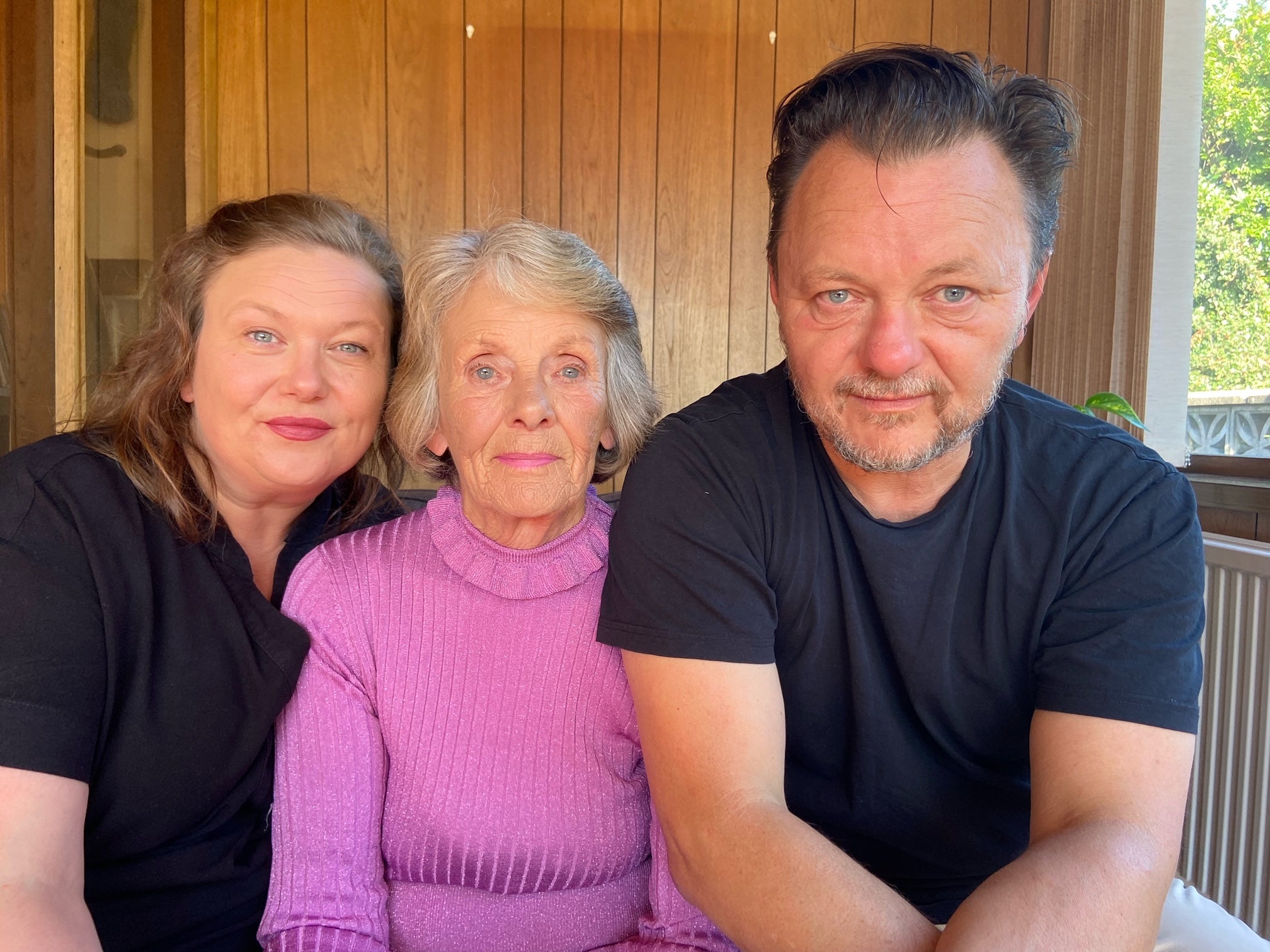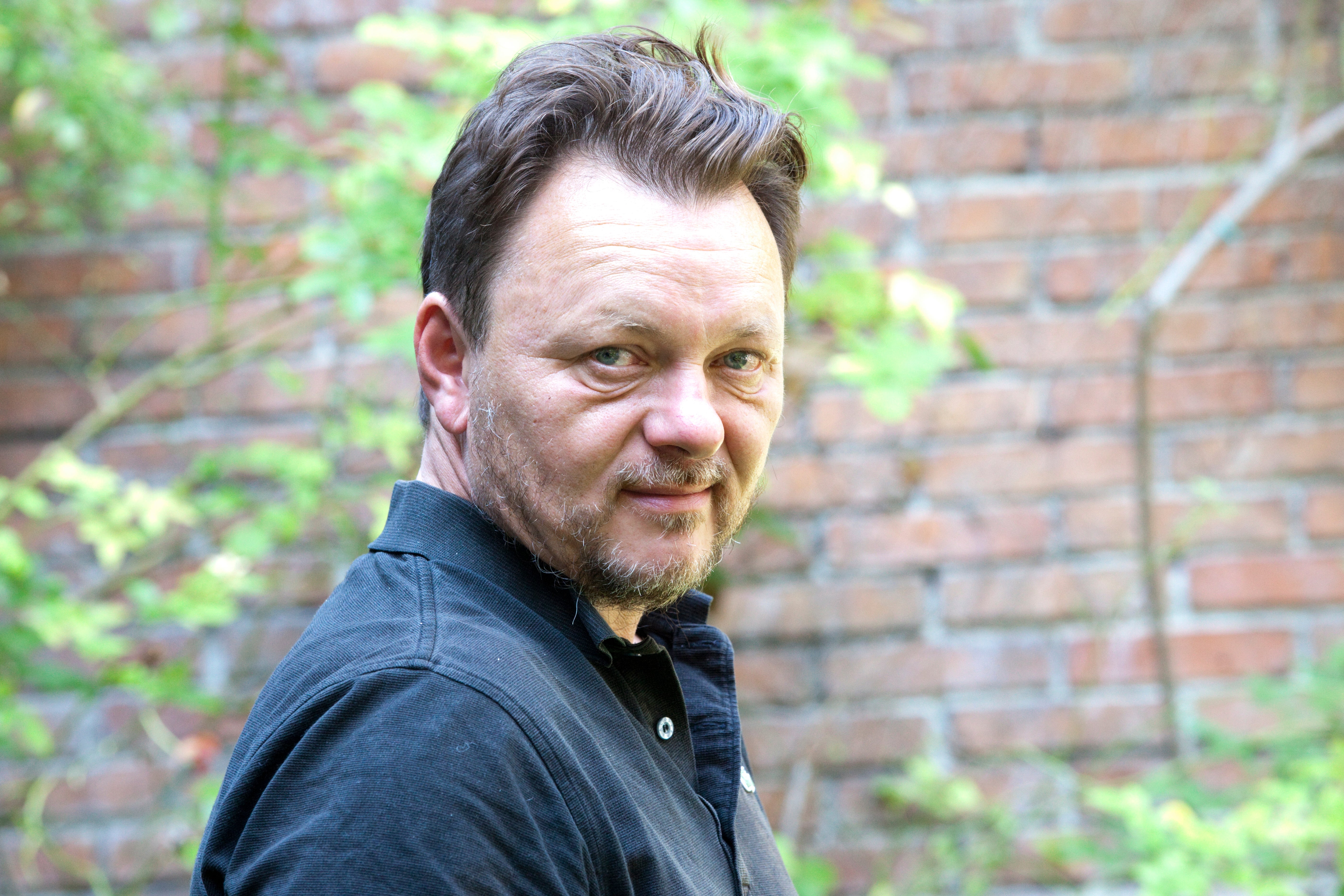John Niven on brotherhood, writing and loss: ‘You become a PhD in suicide only after it’s affected you’
After losing his brother Gary to suicide, Scottish writer John Niven quickly started to write things down. He tells Fiona Sturges about his new memoir, ‘O Brother’, which retraces Gary’s difficult life and death


On 3 September 2010, the novelist John Niven was keeping vigil at the bedside of his brother, Gary, alongside his mother, Jeanette, and sister Linda. Four days earlier, Gary had called 999 after trying to take his own life at home. He was taken by ambulance to hospital where he was triaged and put in a room by himself. There he once again attempted suicide. On being found unconscious by staff, he was put in a medical coma.
With no hope of recovery, the time had now come to take him off life support. While Jeanette told Gary she loved him, and Linda held his hand, Niven whispered in his brother’s ear that he was sorry not to have tried harder to help him. Then, when it was all over, he went to the nearest bathroom and pulled out a notebook to write it all down.
“I think writers, and certainly novelists, have to have what Graham Greene called ‘the chip of ice in the heart’,” Niven, 57, tells me. “In the book, I say I’m watching the scene as a son and a brother, but also as a writer who knows he’s going to go down the hall to record it all… I wouldn’t say I felt shame, but I do acknowledge there’s an aspect to being a writer that is not completely savoury.”
That book is O Brother, in which Niven – who made his name in 2008 with the bestselling music industry satire Kill Your Friends – documents Gary’s death and the brutal “Chernobyl of the soul” that followed for his family. It is with a mixture of humour and pathos that he also recalls his and Gary’s years growing up together on the west coast of Scotland and their very different trajectories as adults. Long before becoming a writer, Niven worked in the music industry and lived the high life in London with a fat salary and drugs and booze on tap. Meanwhile, his brother stayed in their hometown of Irvine, Ayrshire, where he struggled to hold down a job and would go on four-day drug benders. Gary would go on to serve three years in Barlinnie prison outside Glasgow for dealing ecstasy. By the time he died, he was struggling with chronic cluster headaches and extreme depression.
Looking back, it’s clear to Niven that Gary was a tragedy waiting to happen. “I’m a bit like Edward Smith, the captain of the Titanic,” he reflects. “The red lights are flashing across the board. My brother is 42, literally in the median age band for suicide. He is unemployed, single, living alone and having financial difficulties. He has a history of drug and alcohol abuse. But it’s also a fact of life that you become a PhD in suicide only after it has affected you.”
Niven is talking via video call from his home in Buckinghamshire where, behind him, the sun is streaming through pretty, mullioned windows. He is relaxed, entertaining company, at once self-effacing and sharply funny – and a good deal more worldly than the Alan Partridge figure he insists he was as a schoolboy who “enjoyed wearing blazers and a tie to school”. He was meant to be taking some time off ahead of the book’s publication, but promotional duties are dragging him back to his computer. Niven says he finds talking about Gary more painful than writing about him – “It sounds strange but at the desk, it’s all about dry-eyed business,” he explains. He recalls an early reading of the book in front of an audience where, to his surprise, he struggled to stay composed: “I read the extract where Gary dies, and when I got to the line about my mum talking to him, I thought ‘I might lose it here’ and I had to stamp my foot and take a breath.”
O Brother took three and a half years to write, which is the longest Niven has spent on any of his books. He is prolific, having written 10 novels in 19 years, and that’s on top of his screenwriting credits for the Norwegian comedy The Trip, How To Build a Girl (co-written with Caitlin Moran, from whose novel it was adapted), and the 2015 film adaptation of Kill Your Friends. “In fiction, once I know how a character talks, I find it very easy,” he says. “It’s just play, it’s fun. Whereas with O Brother, sustaining [my own] voice over 400 pages, I found challenging. It’s like listening to yourself going on and on at a party.” It’s a measure of just how uncomfortable Niven is with writing about himself that in the book he describes memoir as “a forced confession”.
So why do it? “There’s an old saying about how you don’t choose your subjects, they choose you,” he replies. “For me, a book begins as a straight thought that becomes a recurring thought that eventually becomes the only thought possible. So, at a certain point, I realised ‘Oh God, I’m going to have to write this.’ But I wasn’t running to it with the joy I would a novel. I’d rather write five novels than do another one of these. I think if you approach memoir saying ‘Yippee, time to write my life story’, you ain’t doing it right.”

For Niven, the research for O Brother was the hardest part, not least because “I felt a responsibility to get it right.” To fill in the gaps of Gary’s adult life, he got in touch with his old friends and acquaintances, though not all were forthcoming. “These are people who’ve largely led quasi-legal lives. When you’re a writer, you smack of officialdom, of The Man. You’re getting off the plane from London with your notebook and it’s, like, ‘What the f*** does this guy want?’.” He also got copies of his brother’s medical records which contained detailed psychiatric reports, all of which made for brutal reading.
It was the death of their father, John, from cancer that sent Gary’s mental health into freefall. Gary was 24 at the time, still living at home, and the pair had long been at loggerheads. Born in 1924, Niven Sr had grown up during the depression and fought in the Second World War. “So to him, the idea that Gary would be going out on a Thursday, partying for days and then coming home to go to bed on a Monday lunchtime was beyond comprehension,” he says. “So they were fighting bitterly and Gary never got the chance to make that right, which led to this nuclear explosion of pain. Between me and my dad, there wasn’t a lot left unsaid and I’d done a few things that hopefully made him proud. But Gary wasn’t as geared toward parent-pleasing as me. I think he just thought ‘F*** it, I’ll be as bad as I can be’.”
Niven always felt he was a writer, even though it took him until he was 34 to devote himself to it. As a child, he was “never fully engaged in any social situation as I was always monitoring it, watching it, taking notes on what was interesting.” In his teens and twenties, he fitfully tried writing stories but didn’t have the self-discipline to keep going. In the end, he got sidetracked by music. On leaving school, he went to university, played in a band and, before finishing his studies, was offered a job at a record label just as Britpop was taking off.

The next decade was a “maelstrom of hedonism… I’d been a student and I’d been in a band and so I hadn’t earned a penny until my mid-twenties and suddenly it was ‘Woah, let’s go.’ It was a very cossetted experience. You get a bottomless expense account, you get a company car, you get a petrol card. By the time I was in my thirties I still didn’t know how you taxed a car, as someone from the mail room would simply put a tax disc on my desk. But this thing was niggling away at me that this wasn’t what I was meant to be doing.”
From his years discovering and signing bands, Niven knew that failure as a novelist was likely. “In the music business you become very familiar with the notion of two million demo tapes, for every 20 bands that get signed, for every two that sell any records. And it looked to me like publishing was the same, if not worse. But, in the end, the not trying to do it was making me more miserable than any attempt to do it could have.”
I napalmed every conceivable bridge with ‘Kill Your Friends’
And so he left his job and sold his flat to “fund my arrogance. There I was thinking I could write the great British novel in 18 months. In fact, my first book [Music from Big Pink, a novella set in Woodstock in the 1960s] took me a lot longer. If I hadn’t had a very forgiving and generous girlfriend, I’d have been doomed.” But it was the foul-mouthed, blood-spattered Kill Your Friends, hailed by Word magazine as “possibly the best British novel since Trainspotting”, that really changed his fortunes. Now, he says, “there’s not a day goes by when I don’t practically go down on bended knee in my study and kiss the floor in gratitude that this all worked out, because I’d napalmed every conceivable bridge and I wasn’t fit for purpose for anything else.”
Niven is already writing another novel and has just completed the first draft. Writing it was “a day at the beach” compared to the experience of writing O Brother. Nonetheless, he is proud of the latter for “shining a light on a life that would normally remain unexamined”. While Niven doesn’t hold with the idea of memoir as catharsis, he says that, as a writer, “there is little need for therapy because you spend a lot of time in the mental company of your most painful moments and of the people that aren’t here anymore.”
Perhaps O Brother’s most arresting moment comes in the final chapter where Niven boldly delves into Gary’s psyche and imagines, in devastating detail, what took place while he was alone in that room in hospital. Niven notes that it is common for survivors of suicide to want to know exactly what happened, and to wish they could go back in time and intervene. “You think if you could just have got him through that night, things might have turned around, even though they likely wouldn’t,” he reflects. “I might get flack for that chapter because who knows what goes through someone’s head when they [are trying to] die? But, you know, I’ll take it. For me it was attempt to achieve a coda of peace. Because peace is what Gary wanted.”
‘O Brother’ by John Niven is published by Canongate on 24 August
If you are experiencing feelings of distress, or are struggling to cope, you can speak to the Samaritans, in confidence, on 116 123 (UK and ROI), email jo@samaritans.org, or visit the Samaritans website to find details of your nearest branch.
If you are based in the USA, and you or someone you know needs mental health assistance right now, call the National Suicide Prevention Helpline on 1-800-273-TALK (8255). This is a free, confidential crisis hotline that is available to everyone 24 hours a day, seven days a week.
If you are in another country, you can go to www.befrienders.org to find a helpline near you.






Join our commenting forum
Join thought-provoking conversations, follow other Independent readers and see their replies
0Comments